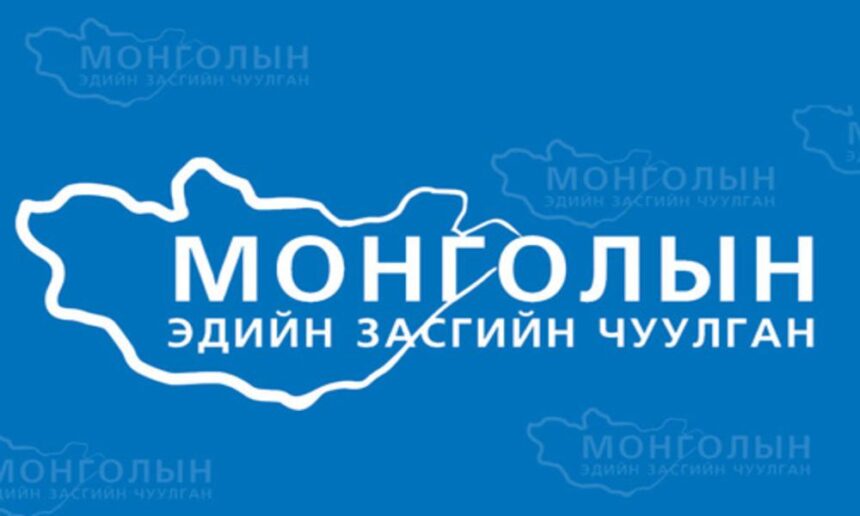Last week, the first-ever Mongolian Economic Forum ended in Ulaanbaatar City. Like in other recent world economic forums hosted for the 40th time in Davos, Switzerland, the significance of this event was to get an image of what might happen in the near future on major issues of general interest, drawing from the speeches of those who impact public opinions.
If to only mention one issue among many topics and views, the issue of government debt was raised both at the Davos and Ulaanbaatar forums. During the Davos Economic Forum, well-known economist Nouriel Roubini stated that increasing budget deficits and government debts in Greece and Spain pose looming and fundamental threats to the EU holding together and might eventually cause a breakup of the monetary union.
The Greek budget deficit consistently ran more than four times the European Union limit of 3 percent of gross domestic product, and recently finally became insolvent, becoming unable to pay federal salaries and wages of employees, which prompted teachers and public employees to go on strike, followed by a strike by public transport workers. At the request of the current Greek premier, the European Union carried out an inspection of the situation and it revealed that the country’s debt was actually four times more than what was stated in the country’s report to the EU. It is no longer a secret that the Socialist Party that previously ruled the government is responsible for these debts and that they were hiding this fact by using divisive inventorial means. Consequently, the search for the guilty persons are underway. The European Commission now demands Greece to cut its budget deficit down to 3 percent of GDP.
During the Economic Forum in Ulaanbaatar, Mongolia’s Finance Minister, in an interview to Bloomberg (A U.S. business news TV network), said Mongolia plans to sell as much as US$1.2 billion of bonds overseas later this year, its first benchmark offering of a dollar-denominated debt, to fund infrastructure to support its mining industry, with the maturity of the bonds set to be between 8-10 years. It means an independent country is going to get a credit with a minimum annual coupon rate of 5 percent, meaning the country is to pay $60 million at the end of every year, and again upon maturity, together with the basic principle of loan.
‘Later this year’ means the end of a deadline put forth by the International Monetary Fund in the autumn of 2008 to retain the budget deficit below the mandated 5 percent of GDP.
Probably this is the reason why the Mongolian Prime Minister made a statement that the Tavan Tolgoi Coal Deposit would be 100% owned by the Mongolian government, to the address of less informed or less educated electors, shortly before that.
It is all about our government getting a long-term credit from abroad, while paying high-rate interests and thus raising the 2010 budget deficit (which was previously approved with just a 5% deficit), by 25 percent, then subsequently building power plants, subsidizing the auto, railroad, and mining industries, and modern, high-tech concentrating and processing plants, but all these debts will be paid off not by the current cabinet assembly, but by successive future cabinets.
Originally, we, the Mongolian people, could be free from debts if all these works could be performed by foreign investors with their investments, and then the government collects relevant taxes from them, properly.
However, judging from the last two decades of experience of how cabinets of ministers formed by two big political parties in conert, or jointly, have dealt with the capital of Mongolia and how they’ve cooperated to sack the money belonging to the country and its people, it is hardly believable that they can use such an equivalently huge loan (half of the country’s GDP), in a way beneficial for all Mongolians. But there is no doubt that politicians will take on this big debt on their own and raise funding for election expenses from their own political parties.
Isn’t it a bit too early to take on such debt, for such a country like ours, where it is still too complicated to decide who is a minister and who is a parliament member, or when a European Union member state like Greece is in panic wondering when, how, and which cabinet of ministers were distributed credits, and how the credits are stated in accounts?
If we cannot pay off this big debt and its interests that the government is happily willing to take-on within due maturity, foreign countries, organizations, and large companies will no longer do businesses and trade with Mongolia. Then the only way to raise funds after that, will be to raise tax rates, cut expenses, and cut the wages of physicians and teachers first.
The foreboding signs and consequences of a big debt is the injustice in the fact that only a few people (hiding behind political parties) will accept funds in the name of each Mongolian citizen, only to make themselves personally wealthy and rich, while leaving the citizens to pay off their debts with their own hard work, the effects of which extending beyond the country, is approaching.












